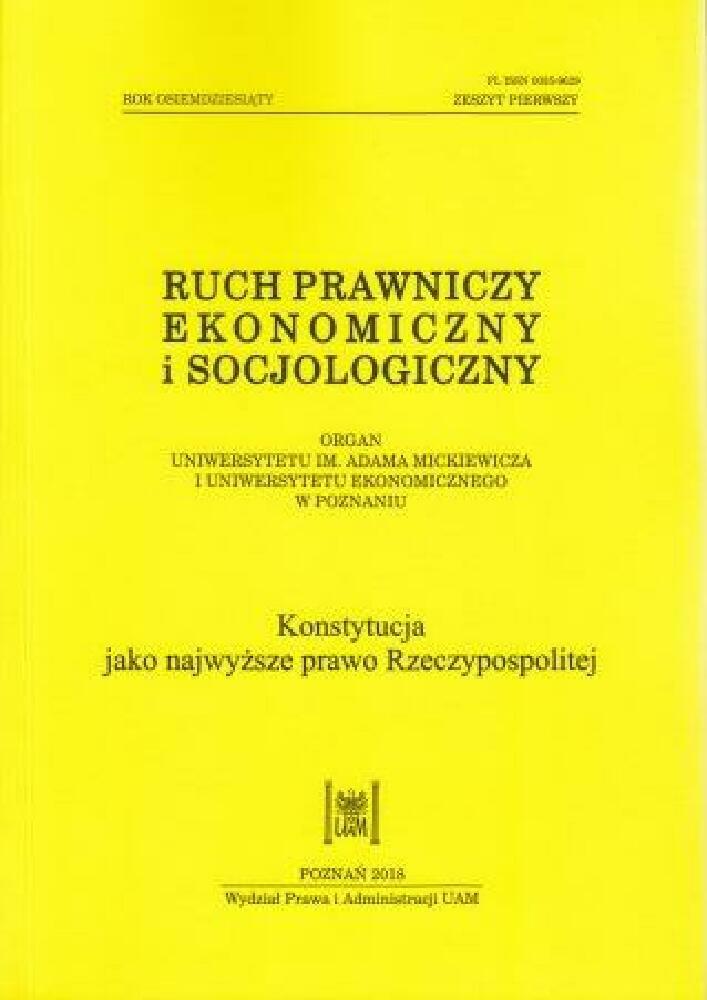Abstract
The essence of the democratic power established in the Constitution of the Republic of Poland is to limit this power in order to protect the rights of the individual against threats that may be posed by the rule of the majority, especially when this majority seeks to impose its values and beliefs on others. This limitation is expressed both by the principle of the separationand balance of powers and by the principle of a democratic rule of law, and above all by the principle of the inherent and inalienable dignity of man. In the light of the Constitution, the supremacy of the nation as a constitutional value is not of an absolute nature, especially in the context of the special status of human rights which is anchored in the concept of dignity. The current Basic Law, granting the supreme authority to the Polish nation, requires that the authority of that supremacy be exercised in compliance with the principles and in forms set forth in the Constitution. This means in particular, the constitutional legitimacy of the judiciary to restrict, pursuant to the provisions of the Constitution as the supreme law, the powers of other authorities, as well as the authority (sovereign) exercising its power directly. The existence of independent judiciary leads, on the one hand, to the rejection in the conception of a democratic state, of the assumption of an unlimited scope of power of the governing authority, and on the other hand, to the recognition as a determinant of democracy of only those manifestations of the will of the majority, which have a constitutional legitimacy and are therefore in line with the version of the culture of human rights as enshrined in the Basic Law and which are accepted by judges at the time of the ruling.
License
Copyright (c) 2018 WPiA UAM

This work is licensed under a Creative Commons Attribution-NonCommercial-NoDerivatives 4.0 International License.




